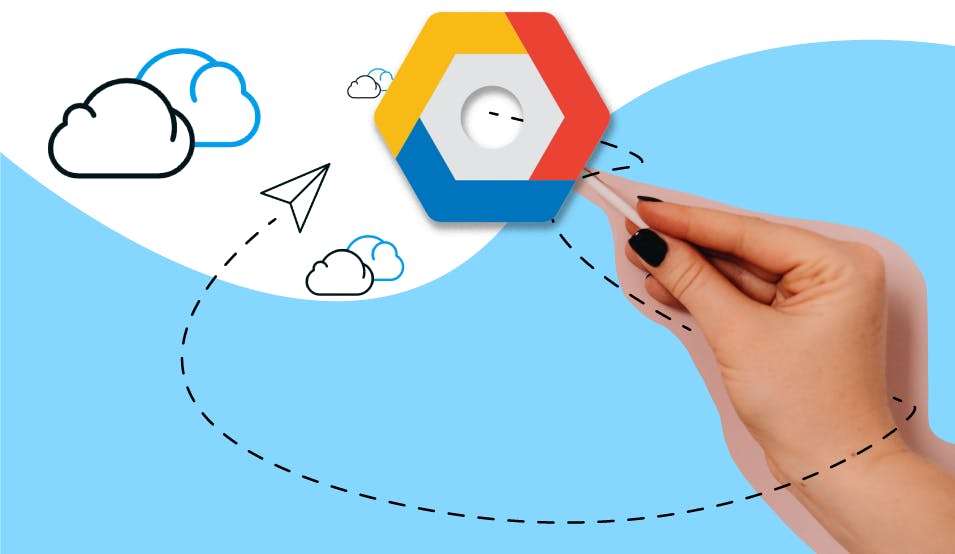If you have ever wondered what separates businesses of yesteryears with the businesses of today, I’ve got three words for you...it’s the cloud. It has been a topic of conversation in business, tech, and pop culture since the late 90s, you probably have heard dozens of jokes about “the cloud” and how it’s literally all around us. For today’s modern day business, the cloud has become an integral part of how we use computers. Long gone are the need for hefty IT applications or legacy structures, the cloud simplifies using digital assets.
As we move away from traditional software and data centers, the cloud has become the go-to option for developing and delivering enterprise level applications. Businesses all over the world are expanding and moving towards using the cloud because it can support the growing needs of SMB’s and large scale enterprises. You’re probably wondering, what will the cloud bring me? Does it really help? We’re here to break down all the intricacies of the cloud and help you move from the past into the future of technology.
What is “The Cloud”?
Before we can explain what cloud migration is, you need to know what “the cloud” really is. The cloud is not in the sky, well it is, but not the one we’re talking about. It’s also not this imaginary place constantly running with streams of data above our head. The cloud refers to software and services that run on the internet instead of your computer. Cloud services can be accessed from browsers like Firefox, GoogleChrome, or through various mobile apps which you may be familiar with if you use any modern smart device. The cloud is such an integral part of our everyday lives that you probably have been using cloud based applications to store your documents, files, and pictures without even realizing it. Those pesky reminders to backup your data to a One Drive or iCloud aren’t just there to power down your battery, it’s where you can easily store files or photos with a few clicks of a button. Need another example? Here are a few cloud services that span different industries and genres:
- Netflix
- Apple iCloud
- Google Drive
- Dropbox
- Microsoft OneDrive
Need we say more? The cloud has many advantages outside of just streaming your favorite TV show or binge watching the latest movie. The cloud helps you access your information with an internet connection and allows you to store content without using your internal phone or computer storage. For a business, this means saving you hundreds of dollars. The cloud and cloud based services have been one of the leading technologies to emerge out of this decade because they are scalable and offer virtual resources like data storage, servers, and networking. So how does the cloud factor into business applications? One of the reasons businesses migrate to the cloud is because it gives access to unlimited computer resources. Who doesn’t like unlimited? It means the opportunities for success are now infinite.
What is Cloud Migration?
While cloud migration may sound super technical, the actual definition is pretty simple. According the cloudguru “cloud migration is the process of moving digital assets — like data, workloads, IT resources, or applications — to cloud infrastructure.” Cloud migration can truly support and provide adequate needs for a growing business looking to move from outdated infrastructures, unreliable firewall applications, or old servers. Moving to the cloud can be a transformative experience for a company, but like any strategic business decision, it should be done without a game plan.
There are hundreds of cloud based solutions and services and you need to do your homework by researching the right model and selecting a service category that aligns with your business structure. A big factor of considering cloud migration is creating a strategy that’s going to help you determine if this is the best step forward for your business. That’s right, we want you to plan for the good, bad, and ugly, before investing in cloud migration. Developing a cloud migration strategy consists of a partial audit of your current software and resources, budget, ROI, security policies, and risk evaluation. We recommend planning out a strategy prior to initiating a cloud migration in order to protect your business, employees, and customers.
How Cloud Migration Benefits Your Business
We’ve talked about the cloud so much you’re probably seeing stars, so now to answer the big question...how does cloud migration benefit your business? Businesses and IT leaders all over the world have been moving their on-premise technology to the cloud because it is flexible, scalable, and cost-effective. It’s that simple. We’ve seen household names like Amazon, IBM, Google, and Oracle who use public cloud hosts operate at exceptional speed and scale because using the cloud supports speed and reliability. That’s right, your favorite search engine and online shopping site uses the cloud to store all their information. In light of the pandemic we’ve seen a rise in remote working and a growing landscape for the digital workspace. Having access to data and services at lower costs has helped to meet consumer demand and drive innovation efforts as the market changes. If we haven’t sold you on cloud services by now, read the additional benefits below.
- Save Money by Reducing Infrastructure Costs - What business doesn’t like to save money? One of the most common reasons businesses move to the cloud is to reduce IT infrastructure costs. Cloud migration can help with operational expenses because they are easy to manage, have affordable upfront costs, and most licensing requirements are taken care of by the provider. You only pay for what you use and many public cloud providers use a “pay as you go approach” versus being tied to a costly data center. Reducing operational costs using the cloud means you can improve your IT processes and put money back into your business or where you need it most.
- Increasing Application Performance - If you are looking to have better interactions and communications to network within the business community, then cloud migration is for you. Organizations can integrate different cloud-based solutions with other enterprise systems and solutions which can improve the quality of the systems. Cloud based apps are less expensive to maintain than on-premise installation so you’re reduced costs for optimal performance. In addition, businesses can expect a fast response to trends and tech innovations because cloud based apps are tested and deployed quickly.
- Improving Security - Security is never anything to gamble with, so why leave you and your customer information to chance? When it comes to security compliance, cloud providers are here to provide top tier service to businesses. Data stored in a cloud environment is more secure than on-premise data centers because cloud vendors are constantly updating their systems to match trends and threats occurring in the digital space. Many cloud providers offer built-in security features like analytics, updates, and cross-enterprise visibility which can prevent unwanted traffic and vulnerabilities. Protect your business and your clients, need we say more?
- Improving Scalability - Are you ready to scale up? Using the cloud allows for improved scalability and puts control in the hands of the organization to add or remove resources as needed. Without growth there is no future for your business and limiting yourself by using outdated software hurts no one, but you. The cloud has an infinite amount of resources which means it can handle accelerated growth without a hitch. Whether you’re a large or small business using the cloud provides flexibility to expand upward or downward based on necessities. Using the cloud has enabled businesses to reshape their infrastructure and workloads without being cemented to equipment.
Are you ready to move to the cloud? Inventive is here to get you on board with cloud migration! After you assess your business needs, IT systems, and determine the best strategy forward, we want to be the provider to help navigate your cloud experience comfortably.







